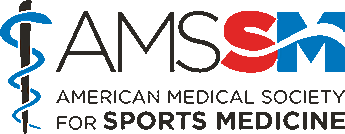|
CHOOSING WISELY: STRESS CARDIAC IMAGING [Back]Choosing Wisely® is an initiative of the American Board of Internal Medicine and is supported by multiple medical societies, including the American Medical Society for Sports Medicine. Each society was asked to contribute five diagnostic tests or treatments that both physicians and patients should question. The highlight this issue is: Don’t perform stress cardiac imaging or coronary angiography in patients without cardiac symptoms unless high-risk markers are present. Returning or starting a new exercise regime as an adult can be a daunting task, especially if you are currently being treated for high blood pressure, diabetes, high cholesterol, smoking cessation or other diseases. This issue will highlight some of the steps to returning or starting a new exercise and help clarify who is at high risk for cardiovascular events and who may need further cardiac evaluation in the form of cardiac stress test and/or cardiac angiography. Before starting a new exercise regime, it is recommended that you receive a physical examination from your primary or sports physician, which may include cholesterol and fasting glucose. Your physician may ask you if you have had cardiac or respiratory symptoms while at rest or during activity. If you answer “yes” to these questions, your doctor may further discuss about cardiac stress testing or coronary angiography as coronary artery disease (CAD) can cause these symptoms and can lead to chest pain and even myocardial infarction (MI or heart attack). Current traditional risks of developing CAD include high LDL (“bad” cholesterol), low HDL (“good” cholesterol), high blood pressure (hypertension), diabetes, smoking, lack of physical activity, family history of early (<50 years old) CAD events, post-menopausal women and men greater than 45 years old. ><50 years old) CAD event, post-menopausal women and men greater than 45 years old. It is currently recommended for patients without symptoms but who have high risk markers, including patients older than 40 years old with diabetes, peripheral artery disease, and/or > 2% yearly risk of cardiac event rate undergo cardiac stress testing and/or coronary angiography prior to starting an exercise regime. Your yearly cardiac event rate is calculated using the Framingham Calculator that uses your sex, age, smoking status, systolic blood pressure, total cholesterol and HDL (“good” cholesterol) and gives your risk of a cardiac event in the next 10 years. If you do not have any cardiac or respiratory symptoms and no high risk markers, it is recommended by the Choosing Wisely® campaign that you do not need to undergo a cardiac stress test or coronary angiography. Once you are clear to start activity by your physician, he/she may then discuss yourF.I.T.T (Frequency. Intensity. Time. Type) Prescription. Frequency is how often are you going to do cardiovascular and strength exercises. Intensity means how hard you are going to work during your sessions. Your doctor can discuss the intensity and your target heart rate and strength training weights, repetitions and sets. Timing is how long you are going to do cardiovascular and strength exercises. Current recommendation is 150 mins/ week or 30-60 mins 3-5 times week of cardiovascular exercise. Type means what exercise is safe and fun for you. It is important to note that if you do have risk factors of CAD, those do not exclude you from starting or continuing exercise, but you will need to work with your physician to develop a safe exercise program. Exercise, healthy lifestyle and diet are all very important in preventing the start and/or progression of many diseases; examples include diabetes, high cholesterol, depression and high blood pressure. AMSSM Member Authors Category: Cardiovascular (Heart) Issues, Chest and Abdomen, Treatments in Sports Medicine, [Back] |

